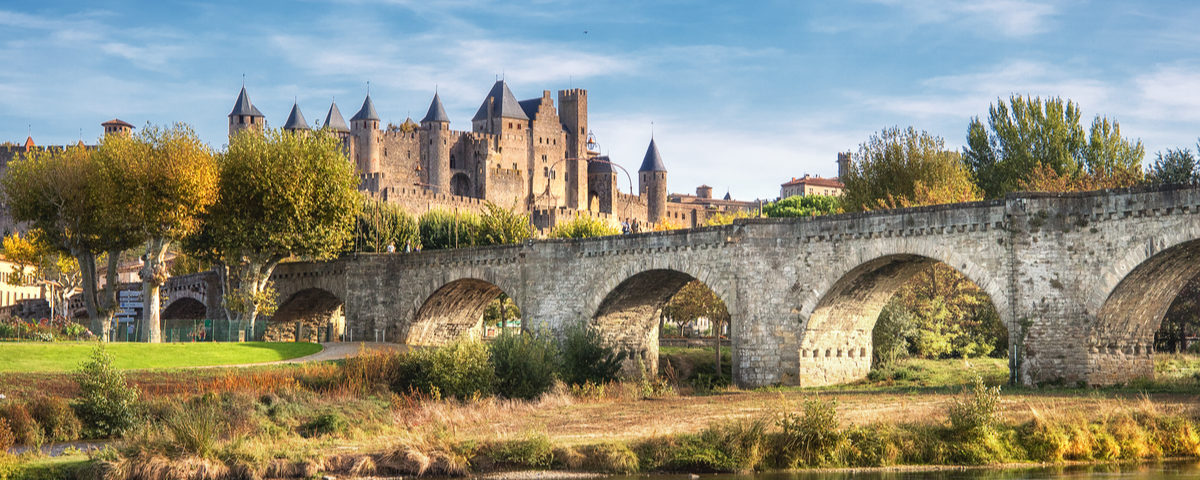I cancelled my holiday this year. It was one of the hardest decisions I have made. I desperately wanted to come back to the UK from my new home in SW France, to spend a week with my parents (aged 80 and 78), along with my sister, her husband and my two nieces. I should be with them now, together on the Isles of Scilly. But though my heart wanted to travel, my head said not to go, and after much soul searching, I broke the news. And no, sharing an occasional drink together on a video call does not make up for what we are missing.
What I am finding even harder, even though I know I have to do it, is to unpack the layers of interconnected privilege implicit in that first paragraph. I get to move somewhere by choice. I get to choose when I travel home to visit my family. I get to go on holiday. Since COVID upturned all these things I long took for granted, I have become even more aware of how lucky I am.
I am an expat. You are a tourist. She is a migrant. They are refugees.
We all are on the move. Seeking something better. Somewhere warmer. Or somewhere where the heat is not unbearable. A place of welcome. Hospitality in the truest sense.
I have been welcomed in France by everyone I have encountered. People have gone out of their way to help me as I fumble in a foreign language; as I struggle to understand a new bureaucracy; as I do whatever I must to ensure I am able to stay after December 31.
This again is my privilege. Through chance of birth I am white, male, and received a decent education in modern languages (and a couple of ancient ones, it being that sort of privilege). Doors swing open more easily when I push.
All this is – too late, and too slowly – being challenged. How fragile and unjust is the system we have designed. How it relies on not seeing what supports the platform. Or who holds it up. How our food is produced. Where our waste vanishes to. Why the cleaner seems tired. What she gets paid.
Things are coming to a head. The Climate Emergency. COVID-19. #MeToo. Black Lives Matter. And the many terrors and oppressions that force people to flee their homes and families and desperately travel by the most precarious of means to seek sanctuary, if not hospitality or welcome, in foreign, unknown lands.
These are all related. We don’t solve one without addressing them all.
And what has all this got to do with tourism? We are the industry responsible for providing hospitality to strangers. We are also a privilege. If around 1 billion people are going on international holidays each year, then 6.5 billion, or 87% of the world, are not.
When a pandemic means people can’t travel, we collapse. Most of our operations exacerbate the climate emergency, and many of our most beloved destinations are imperilled by it. Too often we objectify women, people of colour and indigenous people in our marketing and communications, but do little to truly listen to them or ensure them equal voice or status, let alone define our course.
This has to change. In the last few months, some in our industry have been trying to find ways to address these challenges. Travel Unity has been developing new criteria for diversity and inclusion across tourism. Equality in Tourism works to ensure gender equality. Tourism Declares* and SunX are both urging meaningful action on the Climate Emergency. The Future of Tourism has brought together many of the industry’s best known NGOs to “place destination needs at the centre of tourism’s new future.” And the recently launched Black Travel Alliance is working “to evaluate destinations management organizations and travel brands on not just what they say, but also what they do”, in part through sharing the public commitments to diversity and inclusivity of a host of well known travel brands. Speaking to the writer Joanna Haugen for a recent article for Sustainable Brands, Martina Jones-Johnson, a Black Travel Alliance founding member, commented on what their research has found: “We knew it was bad. We didn’t need to see the data to know that much improvement is needed, but it was important to have that data there.”
In all of these issues bar one, the industry has been too slow to hold itself to account. For example: Of the 954 companies worldwide who have committed to the Science Based Targets on climate change, only 14 are from tourism – a little over 1% of the total, from an industry supposed to be responsible for 10% of GDP. It was only when COVID brought us to a standstill that we rushed to prove to the world – through a plethora of rapidly released protocols and standards, that we could be trusted once more.
This has to change. We need to bring this same existential urgency to how we address race, gender, the climate emergency and all other issues of inequality. Or it won’t just be me cancelling my holiday in the years to come.
(* Disclosure: I am co-founder of Tourism Declares, but make no money from the organisation, nor from highlighting it here)
You may also be interested in…
- How to develop a hashtag strategy for your travel brand
- Will influencer marketing help brands to bounce back post-coronavirus?
- Embracing video to build your brand in times of uncertainty



Thoughtful article Jeremy, and glad to see all the resources you shared via this platform. They are all more important now than ever.